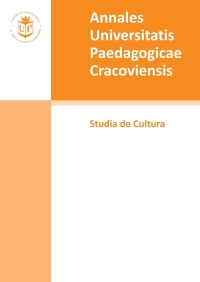Fenomen ruchu antyszczepionkowego w cyberprzestrzeni, czyli fake news i postprawda na usługach hipotezy Andrew Wakefielda
The phenomenon of anti-vaccination movement in cyberspace, or fake news and post-truth in the service of Andrew Wakefield hypothesis.
Author(s): Agnieszka DemczukSubject(s): Media studies
Published by: Wydawnictwo Uniwersytetu Komisji Edukacji Narodowej w Krakowie
Keywords: ruchy antyszczepionkowe;społeczeństwo informacyjne;internet;wolność wypowiedzi;postprawda;dezinformacje;fake news;media społecznościowantivaccine movements;information society internet;freedom of speech;
Summary/Abstract: Przeciwnicy szczepień od ponad dwustu lat wyrażają swoje obawy dotyczące niepożądanych skutków wakcynacji. Kierują się powodami wyznaniowymi i światopoglądowymi, odmawiając zaszczepienia siebie i dzieci. Argumentują, iż obowiązek szczepień to ograniczenie ich praw człowieka. Ruch antyszczepionkowy obecny jest w sferze społecznej od XIX w., jednak dopiero po publikacji artykułu Andrew Wakefielda z końca XX w. na temat domniemanego związku pomiędzy szczepieniem a autyzmem – ruch zyskał dużą popularność i przyczynił się do znacznego wzrostu liczby dzieci niezaszczepionych. Współcześnie w erze elektronicznej, masowej komunikacji wydaje się, iż przed badaczami zarówno nauk medycznych, jak i społecznych stoją nowe wyzwania związane z rozpowszechnieniem ruchu. Obecne w cyberprzestrzeni mowa nienawiści, fake news i dezinformacje wzmacniają i utrwalają postawy antyszczepionkowe. Fenomen Facebooka sprawia, iż każda informacja może być kilka tysięcy razy udostępniona innym internautom – nawet ta nieprawdziwa i wprowadzająca w błąd.The phenomenon of anti-vaccination movement in cyberspace, or fake news and post-truth in the service of Andrew Wakefield hypothesis.The opponents of vaccinations have been expressing their concerns about the undesirable effects of vaccinations for more than two hundred years. They are guided by religious and ideological reasons and refuse to immunize themselves and children. They argue that the obligation to vaccinate is a limitation of their human rights. The vaccination movement hasbeen present in the social sphere since the 19th century, however after the publication of Andrew Wakefield’s article on the subject of the alleged connection between vaccination andautism – the movement became very popular and contributed to a significant increase in the number of unvaccinated children in some countries. Nowadays, in the cyberspace andmass communication, it seems that both medical and social sciences face new challenges related to the spread of the movement. Hate speech, fake news and disinformation present incyberspace strengthen and consolidate anti-vaccine attitudes. The phenomenon of Facebook means that every information can be made available to other users a few thousand times –even the untrue and misleading.
Journal: Studia de Cultura
- Issue Year: 10/2018
- Issue No: 4
- Page Range: 92-113
- Page Count: 22
- Language: Polish

